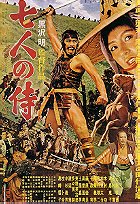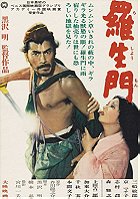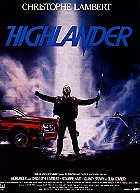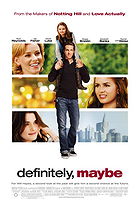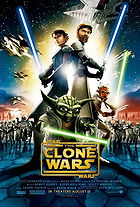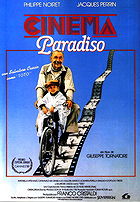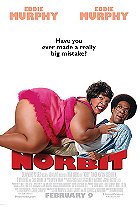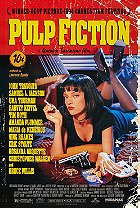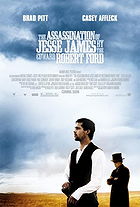Your training is nothing. The will to act is everything. If you make yourself more than just a man, if you devote yourself to an ideal, you become something else entirely...Are you ready to begin?''
The story of how Bruce Wayne became what he was destined to be: Batman.
Christian Bale: Bruce Wayne / Batman
Batman Begins(2005) helmed by 21st Century Hitchcock-esque English Director Christopher Nolan, has more than proved he can deliver a dark and gritty Batman film without resorting to unrealistic qualms.
Nolan gives us a gritty city with rain drenched slums that echo Ridley Scott's Bladerunner, and he makes it dark enough to be captivating, mysterious and yet strong, seductive and oozing style and intelligence without making it look unnatural. Gotham City is supposed to be ugly and decayed, a virtual urban cesspool of crime, and a nightmarish realization of corruption and fear.

I loved as a child Burton's Gothic flavour in Batman, but now I watch it and I see so many inadequacies: He just couldn't capture realism or be taken seriously with his 1989 cartoonized affair. Everything felt like fantastic escapism, yet with Nolan, the king of puzzle and twists, he gives us something that we can take very seriously and yet still be entertained. Part of the nature of this film is the internal eternal nature of fear and the beginning of how the Batman is born. Fears, primal impulses, what drives us to do the things that we do. How does a pure person venture a path of corruption? What is a person willing to do for justice and is it different from vengeance? These are the deep topics the other films never truly studied, or if they did, it was never done successfully. This film does that and more in ways that are deep and meaningful. It's gritty, it's a crime movie, it's a graphic novel adaptation and story of a beloved character adored throughout the World.
''Only a cynical man would call what these people have "lives," Wayne. Crime. Despair. This was not how man was supposed to live. The League of Shadows has been a check against human corruption for thousands of years. We sacked Rome, loaded trade ships with plague rats. Burned London to the ground. Every time a civilization reaches the pinnacle of its decadence, we return to restore the balance.''
"Gotham's time has come. Like Constantinople or Rome before it the city has become a breeding ground for suffering and injustice. It is beyond saving and must be allowed to die. This is the most important function of the League of Shadows. It is one we've performed for centuries. Gotham... must be destroyed."
This is a film that should shatter the preconceptions the inferior films left behind.
Batman Begins delivers an intelligent mature plot (which easily comes straight of the pages) which involved three villains; Ra's Al Ghul, Carmine Falcone, and Scarecrow, and then balances them perfectly keeping everything in the realm of believability. Bad guys shouldn't be scheming one dimensional stereotypes, they should be real people with real agendas and real goals. It's the first film to understand the psychology of Batman. It's adult, without being imprisoned, it's entertaining, without being mindless, it's visually stunning without being unrealistic, and finally the performances give life to everything mentioned prior.
When we are faced with a story, a film which deals with loss, love, revolution, family, revenge, justice, friendship, learning... A scene between mentor and pupil sticks in the mind because I certainly can relate to having lost someone or something in my own life. It is powerful in the sense that we face a society and world in which nothing is certain. We have the challenge of finding those with honour, dignity and respect whom wish to fight for a way of life free from corruption and criminality. When your home or love is taken away there is often an unrelenting thirst for vengeance and to fight the very enemy and source that was responsible:
Henri Ducard: You're stronger than your father.
Bruce Wayne: You didn't know my father.
Henri Ducard: But I know the rage that drives you. That impossible anger strangling the grief, until the memory of your loved ones is just poison in your veins. And one day you catch yourself wishing the person you loved had never existed, so you'd be spared your pain. I wasn't always here in the mountains. Once I had a wife, my great love. She was taken from me. Like you, I was forced to learn that there are those without decency that must be fought without hesitation, without pity. Your anger gives you great power, but if you let it, it will destroy you, as it almost did me.
Bruce Wayne: What stopped it?
Henri Ducard: Vengeance.
Bale was born to play Bruce Wayne becoming the dark knight.
Katie Holmes pulls off Rachel Dawes effectively if you can get past qualms of Dawson Creek series star tackling a role as a Lawyer. If you're a fan of hers, you'll love her in this, especially visually.
Cillian Murphy, much like Bale, was fitting as Jonathan Crane/Scarecrow. He executed the performance effectively; creepy, intelligent, everything the Scarecrow is without going overboard.
What Nolan Goyer and Murphy have done here is bring the Scarecrow to life, possibly making him one of the coolest on screen villains in the history of film. That's a bold statement, but I think it's warranted. Michael Caine, Morgan Freeman, Ken Watanabe, Liam Neeson, Gary Oldman, do I need to say anything about these legends? They were fantastic. Most noteworthy for the comics fans, we have a James Gordon whom looks like Gordon, and works with Batman in memorable parts where Gordon uses the Bat vehicle and helps save Rachel. We also have another great Alfred. Comical, fatherly, and all around impeccable, yet with Micheal Caine the presence of such a renowned artist and acting talent the audience is spoilt by another fine example of casting.
I'd also like to address how awesome it was that Linus Roache was cast as Thomas Wayne, a solemn heartfelt father figure.
Liam Neeson also oozes wisdom, mental and physical prowess regarding a challenging, enigmatic, visionary and legendary role.
Batman Begins true to Nolan gives a twist in the guise of enigmatic great leader Ra's Al Ghul. One of the deepest Batman characters to be captured upon the screen rivaling and shadowing even the intelligence or logical chaos of The Penguin or The Riddler.
So a new beginning for Batman and also a deep study into the realms and intricacies of fear in which the story and screenplay revolves around.
''It's not who I am underneath but what I do that defines me.''
 Login
Login
 Home
Home 24 Lists
24 Lists 448 Reviews
448 Reviews Collections
Collections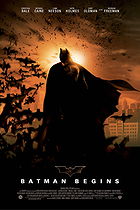
 0 comments,
0 comments, 